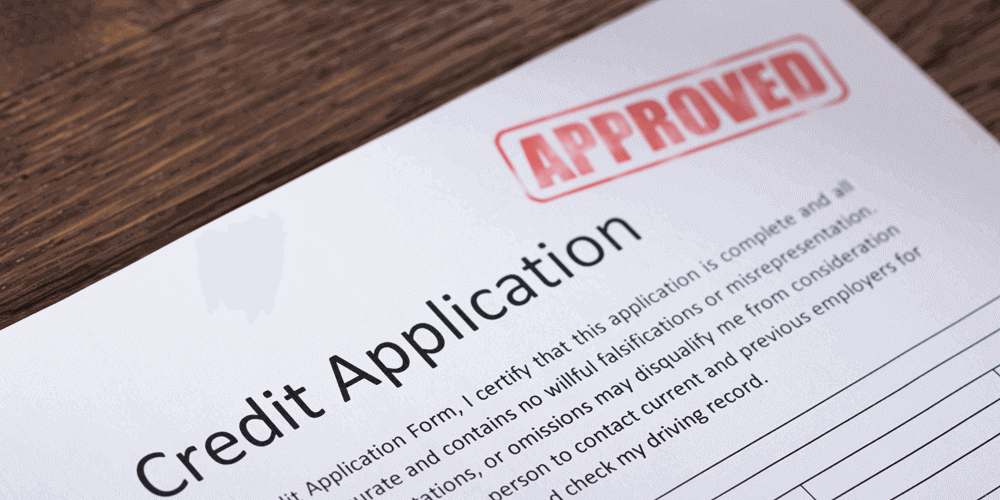What is a 401(k) Loan and How Do I Get One?


Highlights:
- 401(k) loans allow you to borrow money from a 401(k) account or certain other qualifying retirement plans, such as a 403(b).
- 401(k) loans have certain benefits over other types of financing, including lower interest rates and the ability to access funds without triggering a credit check.
- However, 401(k) loans are not without their drawbacks, as pulling money from your retirement accounts can mean diminishing the opportunity to let your savings grow over time.
401(k) loans allow borrowers to temporarily withdraw funds from their 401(k) account and use the money to cover certain expenses. Under the right circumstances, 401(k) loans can provide a useful alternative to other types of financing such as personal, payday and home equity loans. This is especially true if you’re looking to avoid the high-interest rates often associated with other types of short-term financing.
However, that doesn’t mean a 401(k) loan is always your best option. Pulling money from your retirement accounts can mean diminishing the opportunity to let your savings grow over time. Plus, there are unique risks associated with defaulting on a 401(k) loan.
Learn about some of the pros and cons of 401(k) loans, how they differ from other types of financing and how to get a 401(k) loan if you think it could be the right option for you.
How does a 401(k) loan work?
With most loans, you borrow money from a lender with the agreement that you will pay back the funds, usually with interest, over a certain period. With 401(k) loans, you instead borrow money from your 401(k) account or certain other qualifying retirement plans, such as a 403(b). However, traditional and other types of IRAs (such as SEPs, SARSEPs and SIMPLE IRAs) cannot be used for loans.
Drawing from a 401(k) means you are essentially borrowing your own money with no third-party lender involved. As a result, your loan payments, including interest, go right back into your 401(k) account. Unlike other loans, 401(k) loans generally don’t require a credit check and do not affect a borrower’s credit scores. You’ll typically be required to repay what you’ve borrowed, plus interest, within five years.
Most 401(k) plans allow you to borrow up to 50% of your vested account balance, but no more than $50,000. (Vested funds refer to the portion of the funds that you, the employee, own. The contributions you make from your earnings are always 100% vested. If your employer makes matching contributions, the vested percentage may vary depending on the amount of time you have been employed by the company.) The exact funding you’re able to access ultimately depends on your specific retirement plan and the rules established by your employer.
Pros of a 401(k) Loan
- Costs less than other loan types. Depending on your credit scores, a 401(k) loan’s interest rate is often lower than you’ll see with other financing options. Plus, unlike other loans, any interest you pay will go back into your 401(k) account.
- Has no impact on credit scores. 401(k) loans don’t require approval from a third-party lender. As a result, they don’t trigger a credit check and won’t appear on your credit reports or alter your credit scores.
- Avoids withdrawal taxes and penalties. Provided you don’t default on what you borrow, 401(k) loans allow you to bypass the taxes and penalties you might incur with early 401(k) distributions.
- Offers convenient repayment options. Your 401(k) loan payments are often automatically deducted from your paycheck, which streamlines the repayment process. Most plans also permit early repayment with no penalties.
Cons of a 401(k) Loan
- Reduces your retirement savings. Taking a loan from your 401(k) means reducing the savings that you have worked hard to build. Even if you pay the funds back over time, you'll still miss out on potential growth that your funds would have earned had they not been borrowed.
- May require accelerated repayment. If you leave your job, you may have to pay back your loan sooner than you planned — in some cases, as little as two to three months. An accelerated repayment period could put a strain on your finances and make it difficult to repay your loan on time.
- Risks tax-sheltered standing. If you can’t repay your balance in full and your 401(k) loan goes into default, the unpaid amount is considered a taxable distribution by the IRS. If you’re under the age of 59 ½, you may owe withdrawal taxes on whatever you borrowed, plus a 10% penalty.
- Lacks bankruptcy protection. 401(k) loans don’t offer the same financial protections as other kinds of debt. If you declare bankruptcy, you’ll still be required to repay the balance on your loan.
Steps to get a 401(k) loan
If you’ve decided the risks are worth the rewards, follow these simple steps to apply for a 401(k) loan.
- Talk to your employer. Not all 401(k) plans allow loans, so you’ll first need to talk to Human Resources or your benefits person to find out whether a 401(k) loan is even possible.
- Consider the terms. If your employer does offer a 401(k) loan option, you’ll need to read the fine print. You already know that the federal government limits how much you can borrow from your 401(k), but your plan administrator sets its limits, too. Find out the maximum amount you can borrow, your repayment schedule and the interest rate you’ll be charged. Considering those details, you can then determine whether the 401(k) loan still aligns with your financial goals.
- Complete the required paperwork. The application process for a 401(k) loan is typically quick and easy. Most plans even allow you to apply online.
- Receive the funds. Provided your application is approved, you’ll receive the money from your plan administrator by check or direct deposit. The processing period is typically brief.
- Make regular payments on the loan. The repayment period for a 401(k) loan typically begins once you receive the money. You may have the option to automatically deduct your recurring loan payments from your paycheck. If you can afford it, repay your loan early.
- Continue regular 401(k) contributions. It’s critical to keep making regular contributions to your retirement plan while you repay your 401(k) loan. That way, you’ll continue to build your retirement fund without falling too far behind.
When considering a 401(k) loan, be sure to carefully research other options such as home equity loans, personal loans or low-interest credit cards. These options may be a better fit than borrowing from your retirement funds. A 401(k) loan can be a useful option under the right circumstances, but it’s important not to let your present-day financial decisions negatively affect your ability to retire in the future.

Sign up for a credit monitoring & ID theft protection product today!
For $19.95 per month, you can know where you stand with access to your 3-bureau credit report. Sign up for Equifax CompleteTM Premier today!



